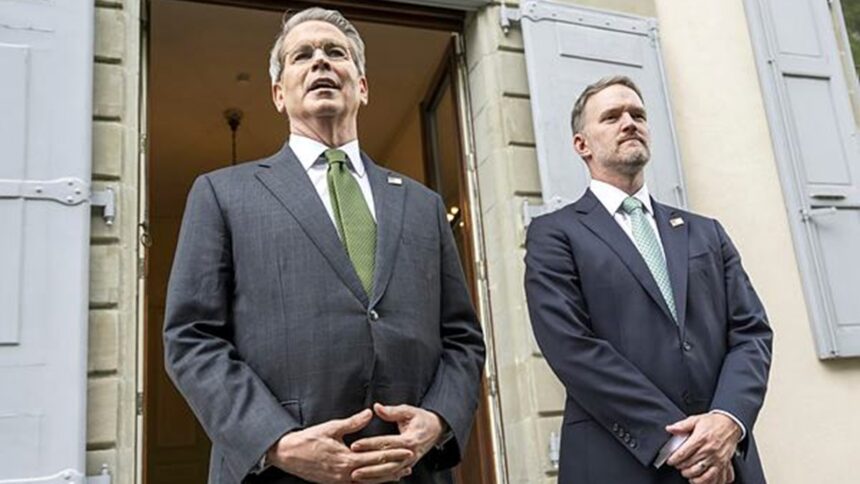The United States and China have reached a preliminary agreement following two days of trade talks held in Geneva, Switzerland, officials confirmed on Sunday.
US Secretary of the Treasury Scott Bessent said the discussions had led to “substantial progress” and described the talks as productive. “We will be giving details tomorrow, but I can tell you that the talks were productive,” he told reporters. “The Swiss government has been very kind in providing us this wonderful venue, and I think that led to a great deal of productivity.”
The US delegation included Secretary Bessent, Trade Representative Ambassador Jamieson Greer, and several senior Chinese officials, including the vice premier and two vice ministers.
Ambassador Greer described the negotiations as “very constructive” and noted that both sides reached agreement more quickly than expected. “It’s important to understand how quickly we were able to come to agreement, which reflects that perhaps the differences were not so large as maybe thought,” he said.
Greer also pointed to the broader economic context of the talks, citing the United States’ $1.2 trillion (₹99.6 lakh crore) trade deficit. “The President declared a national emergency and imposed tariffs, and we’re confident that the deal we struck with our Chinese partners will help us to work toward resolving that national emergency,” he said.
President , who had been briefed by both Bessent and Greer during the talks, posted on his Truth Social platform on Saturday: “A very good meeting today with China, in Switzerland. Many things discussed, much agreed to. A total reset … in a friendly, but constructive, manner.” He added: “We want to see, for the good of both China and the U.S., an opening up of China to American business. GREAT PROGRESS MADE!!!”
Though no immediate reduction in tariffs was announced, the meetings are being viewed as a step towards de-escalation. China’s state-run Xinhua News Agency had said the negotiations represented “a positive and necessary step,” but criticised the US for its “reckless abuse of tariffs.”
The backdrop to the talks includes President Trump’s decision in February to raise tariffs on Chinese imports to 145%, citing trade imbalances and alleged unfair practices. China retaliated with tariffs of its own, bringing much of the $600 billion (₹49.8 lakh crore) in annual bilateral trade to a halt. The resulting trade war has disrupted supply chains and contributed to global economic uncertainty.
Despite the cautiously optimistic tone from both sides, analysts remain sceptical about a long-term resolution. “If a road map can emerge and they decide to continue discussions, that will lower the tensions,” said Swiss Economy Minister Guy Parmelin, who met with both delegations.








